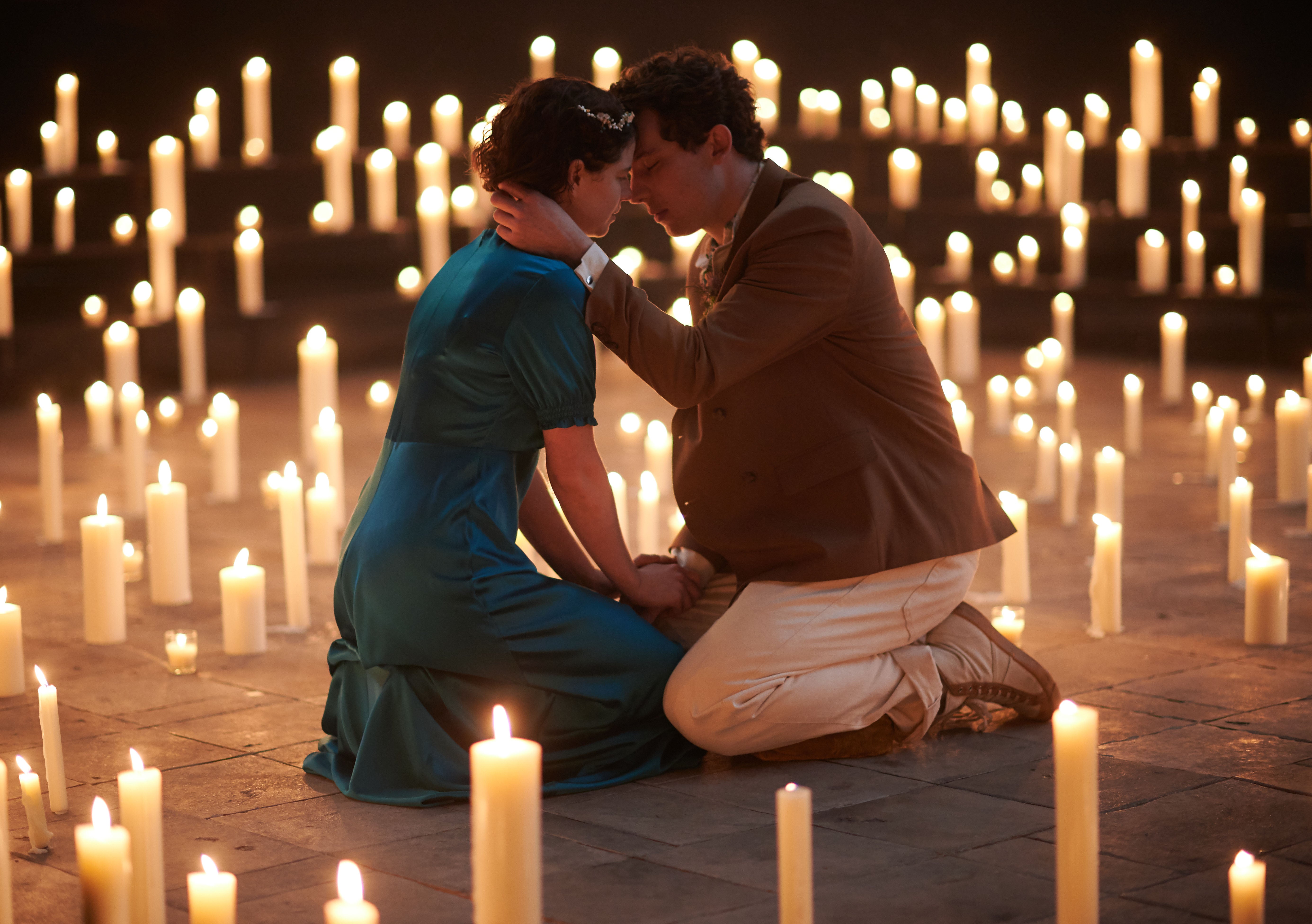Romeo and Juliet review, Lyttelton: Josh O’Connor and Jessie Buckley star in an exquisitely tactile production that’s lacking in depth
This sumptuous new version was originally intended for a stage run back in 2020 before being adapted for the screen

There’s a fitting sense of claustrophobia to Simon Godwin’s Romeo and Juliet, which was originally intended for a stage run in 2020 before being adapted for the screen. Starring Josh O’Connor and Jessie Buckley as the titular lovers and filmed over 17 days last winter, using the National Theatre’s Lyttelton space as a film studio, it is a sumptuously made, if ultimately unaffecting production.
While this feeling of confinement obviously has its limitations (a second half predicated on a series of miscommunications lacks any genuine risk when the characters are so hemmed in), for the most part, it is a chance to lean into a sickening sense of inevitability. The Lyttelton space becomes a lush gilded cage, and Godwin’s production is most striking when it embraces that heightened sensibility, like when Juliet races through her home’s corridors only to be met with an impassable concrete wall, or is watched by her silent, impassive cast-mates as she takes her sleeping draught.
It is an exquisitely tactile piece of work: cinematographer Tim Sidell has a penchant for trembling close-ups on cheeks, hands, and lips; Soutra Gilmour’s design contrasts soft, romantic textures with hard, industrial lines; and Kate Waters’ fight sequences are fascinatingly carnal, often feeling like grappling, urgent embraces. Godwin finds quiet rhymes and resonances in the text and extracts them in a manner that could only work on film: as Mercutio wrestles with Tybalt, it cuts to Juliet fervently wishing for her wedding night to arrive, and a shot of a bloody knife slices through a moment of swooning romance. Sex and death are inextricable, pleasure and pain go hand in hand, and the present is poisoned by glimpses into the future.
O’Connor has an easy charisma about him, and excels when conveying shuffling uncertainty, but struggles as a man overwhelmed with the extremes of passion. When his Romeo kills Paris, it is with well-observed reluctance, stumbling back in shock before carefully catching his adversary as he falls to the floor; whereas his murder of Tybalt in an fit of rage never feels quite as unbridled and reckless as it should. But really, this is Buckley’s show and she steals it through and through. There is a lightness, an openness to her form, a searching quality to her Juliet that is twinned with a quiet core of self-assuredness. She is irresistible, and it is telling that the show’s finest scene is not between its lovers, but between her and Tamsin Greig’s steely, rictus-grinned Lady Capulet. It’s a taut, desperate moment where the similarities and differences between mother and daughter are drawn out, and it becomes evident that Greig’s Lady Capulet has ossified where Buckley’s Juliet remains soft.
Emily Burns’s adaptation runs at a fleet-footed 90 minutes, and can often feel overly condensed, sacrificing depth for mood. Certain ideas and moments stick in my mind, like a kiss between Fisayo Akinade’s bold Mercutio and Shubham Saraf’s gentle Benvolio, but these details are relegated to intriguing snippets that aren’t afforded the opportunity to breathe, to be explored in more than a few shots of longing glances. Close-ups on tear-streaked faces and bare skin aren’t quite able to do the emotional heavy-lifting necessary – it’s a gorgeous piece of work, yes, but I remained resolutely dry-eyed.
Join our commenting forum
Join thought-provoking conversations, follow other Independent readers and see their replies
Comments


Bookmark popover
Removed from bookmarks